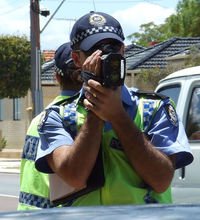 Cook County Chief Judge Timothy Evans has issued an order which makes the greatest attempt yet to deal with overcrowding in Cook County Jail which is caused by defendants being forced to sit in jail while their cases work their way through the Cook County criminal justice system simply because they cannot afford to post the bond needed to walk out of jail. Estimates place the number of defendants who are sitting in Cook County Jail just because they can’t afford to post bond at between 250 to 300 inmates per day. Most of those bonds are for $1,000 or less. This problem plays a major role in the overcrowding of the 9,000 inmate Cook County Jail. The overcrowding problem at Cook County Jail is causing a major strain on Cook County’s limited budget resources.
Cook County Chief Judge Timothy Evans has issued an order which makes the greatest attempt yet to deal with overcrowding in Cook County Jail which is caused by defendants being forced to sit in jail while their cases work their way through the Cook County criminal justice system simply because they cannot afford to post the bond needed to walk out of jail. Estimates place the number of defendants who are sitting in Cook County Jail just because they can’t afford to post bond at between 250 to 300 inmates per day. Most of those bonds are for $1,000 or less. This problem plays a major role in the overcrowding of the 9,000 inmate Cook County Jail. The overcrowding problem at Cook County Jail is causing a major strain on Cook County’s limited budget resources.
As of September 18, defendants charged with a felony will be interviewed before their bond hearing about their financial resources. Criminal felony defendants are already interviewed by Pretrial Services before their bond hearing. They are asked about their criminal record, current and past employment history, family history, residence status and mental and physical health status. As of September 18 they will also be questioned about their financial resources. The report will be presented to the judge presiding over the Bond Hearing. According to Judge Evans order, judges will not be allowed to set a higher bond than defendants charged with a felony can afford provided that the defendants do not pose a danger to the public.
This approach, goes a long way towards addressing criticism that bond procedures in Cook County discriminate against the poor because it unfairly imprisons the poor, merely because they don’t have the money to post bond. This problem disproportionately affects racial minorities. This problem has been gaining attention as well as support from important Cook County law enforcement personnel. Cook County Sheriff, Tom Dart, has been a long-time proponent of changing the procedures for the setting of bonds to release defendants who are poor and cannot afford the low bonds needed to be released from Cook County Jail. Cook County State’s Attorney, Kim Foxx, has been taking steps to address this problem as well. In March she announced that her office will not oppose the release of defendants who have a bond of $1,000 and under set. Last month she announced that her office will agree to have Individual Recognizance Bonds set for more defendants. Individual Recognizance Bonds, also known as an “I-Bond” do not require that any money be posted for release. Just a signature by the defendant that they promise to appear in court to answer to the charges filed against them.
 Chicago Criminal Lawyer Blog
Chicago Criminal Lawyer Blog











 Last week, Kane County State’s Attorney, Joe McMahon, reported that Kane County Prosecutors have seen a rise in the number of criminal cases filed in Kane County in the first six months of this year compared to last year. McMahon reports that felony filings are up 15.7% compared to the same period last year. The increase in criminal cases in Kane County is happening with misdemeanor and traffic cases as well. In the first six months of 2017, 1,247 new felony cases were filed. During the same period last year, 1,078 cases were filed. Aurora, the largest city in Kane County, has seen a drop in the number of new felony cases. Most criminal cases in Kane County come from Aurora. The Village of Carpentersville has seen a rise in the number of Retail Theft cases. Carpentersville police attribute this to the opening of a new Walmart in Carpentersville. Elgin, the second largest city in Kane County, has seen a rise in violent crimes. McMahon is concerned with the increase in the number of criminal cases filed in Kane County since the number of criminal cases filed increased in 2016 as well.
Last week, Kane County State’s Attorney, Joe McMahon, reported that Kane County Prosecutors have seen a rise in the number of criminal cases filed in Kane County in the first six months of this year compared to last year. McMahon reports that felony filings are up 15.7% compared to the same period last year. The increase in criminal cases in Kane County is happening with misdemeanor and traffic cases as well. In the first six months of 2017, 1,247 new felony cases were filed. During the same period last year, 1,078 cases were filed. Aurora, the largest city in Kane County, has seen a drop in the number of new felony cases. Most criminal cases in Kane County come from Aurora. The Village of Carpentersville has seen a rise in the number of Retail Theft cases. Carpentersville police attribute this to the opening of a new Walmart in Carpentersville. Elgin, the second largest city in Kane County, has seen a rise in violent crimes. McMahon is concerned with the increase in the number of criminal cases filed in Kane County since the number of criminal cases filed increased in 2016 as well. This is one of the more common questions that I get asked when people call me wanting advice about how to deal with a situation like this. Many people think that as long as it’s not the police asking questions, they have nothing to worry about. Nothing can be further from the truth. If your employer is suspecting that you stole something and they want you to come in to the office to discuss the matter, you need to be aware of how dangerous this situation can be. This situation can be more dangerous than talking to the police. Let me explain why.
This is one of the more common questions that I get asked when people call me wanting advice about how to deal with a situation like this. Many people think that as long as it’s not the police asking questions, they have nothing to worry about. Nothing can be further from the truth. If your employer is suspecting that you stole something and they want you to come in to the office to discuss the matter, you need to be aware of how dangerous this situation can be. This situation can be more dangerous than talking to the police. Let me explain why. A Pre-trial conference is the usual way that a criminal case is resolved in Illinois without the need to go to trial. The Pre-trial conference is a meeting that occurs between the prosecutor, the defense lawyer, and the judge. The meeting is usually, but not always, behind closed doors, and the parties all get together to discuss the case to see if there’s a way to work out an agreement short of trial. Illinois Supreme Court Rule 402 allows for this conference to happen and sets forth the requirements for such a conference to occur. That’s why this type of conference is commonly called a “402 Conference” by lawyers and judges.
A Pre-trial conference is the usual way that a criminal case is resolved in Illinois without the need to go to trial. The Pre-trial conference is a meeting that occurs between the prosecutor, the defense lawyer, and the judge. The meeting is usually, but not always, behind closed doors, and the parties all get together to discuss the case to see if there’s a way to work out an agreement short of trial. Illinois Supreme Court Rule 402 allows for this conference to happen and sets forth the requirements for such a conference to occur. That’s why this type of conference is commonly called a “402 Conference” by lawyers and judges. This is a very frequent question that I get from people that call me. They want to know how the police can arrest them without any evidence that they did anything wrong. Just because you were arrested by the police and charged with a crime does not mean that you are guilty. An arrest and a criminal charge is just an allegation. The police officer who arrested you, and the prosecutor that charged you with a crime, believe that you did something wrong. Now they must prove you guilty beyond a reasonable doubt in court. There’s several things that you can do to make it more difficult for the police and the prosecutors to prove you guilty in court. Let’s talk about some of the things that you can do to help your case.
This is a very frequent question that I get from people that call me. They want to know how the police can arrest them without any evidence that they did anything wrong. Just because you were arrested by the police and charged with a crime does not mean that you are guilty. An arrest and a criminal charge is just an allegation. The police officer who arrested you, and the prosecutor that charged you with a crime, believe that you did something wrong. Now they must prove you guilty beyond a reasonable doubt in court. There’s several things that you can do to make it more difficult for the police and the prosecutors to prove you guilty in court. Let’s talk about some of the things that you can do to help your case. Every year the Alliance Against Intoxicated Motorists releases it’s annual DUI arrest survey for Illinois DUI arrests. This year’s study has some interesting statistics and numbers that I want to share with my readers. The Alliance Against Intoxicated Motorists sends out surveys to almost 700 police agencies in Illinois. Roughly 81% of the police agencies responded and they release the findings every year.
Every year the Alliance Against Intoxicated Motorists releases it’s annual DUI arrest survey for Illinois DUI arrests. This year’s study has some interesting statistics and numbers that I want to share with my readers. The Alliance Against Intoxicated Motorists sends out surveys to almost 700 police agencies in Illinois. Roughly 81% of the police agencies responded and they release the findings every year. The Arlington Heights Police Department has announced that they will have a Traffic Enforcement Campaign in place from June 26 to July 9, 2017. The Traffic Enforcement Campaign coincides with the upcoming Fourth of July weekend. The Traffic Enforcement Campaign will check motorists and vehicles for seatbelt violations, DUI driving, and a roadside safety checkpoint. The first roadside safety checkpoint will take place on June 28th on Arlington Heights Road just south of Algonquin Road. A roadside safety checkpoint is a way that the police can look inside your vehicle and pull you over to the side if they smell something, or see something inside the car, or suspect that the driver is up to no good. What the Arlington Heights Police are planning on doing this weekend is commonly known as a “Police Roadblock.” The Arlington Heights Police will be looking for people that are not wearing their seat belts and are Driving Under the Influence of Alcohol or Drugs. The enforcement campaign is being paid for with Federal Traffic Safety Funds and administered by the Illinois Department of Transportation.
The Arlington Heights Police Department has announced that they will have a Traffic Enforcement Campaign in place from June 26 to July 9, 2017. The Traffic Enforcement Campaign coincides with the upcoming Fourth of July weekend. The Traffic Enforcement Campaign will check motorists and vehicles for seatbelt violations, DUI driving, and a roadside safety checkpoint. The first roadside safety checkpoint will take place on June 28th on Arlington Heights Road just south of Algonquin Road. A roadside safety checkpoint is a way that the police can look inside your vehicle and pull you over to the side if they smell something, or see something inside the car, or suspect that the driver is up to no good. What the Arlington Heights Police are planning on doing this weekend is commonly known as a “Police Roadblock.” The Arlington Heights Police will be looking for people that are not wearing their seat belts and are Driving Under the Influence of Alcohol or Drugs. The enforcement campaign is being paid for with Federal Traffic Safety Funds and administered by the Illinois Department of Transportation. Cook County State’s Attorney, Kim Foxx, has announced that her office will stop prosecuting cases involving people charged with driving on a suspended or revoked driver’s license based on a financial reason, such as failure to pay parking tickets. tolls or child support. The decision to do this is based on a lack of funding for the State’s Attorney’s Office which has left the office with not enough prosecutors to handle the criminal prosecutions in Cook County. This does not mean that these cases will go away in Cook County. Individual towns, cities and villages will be allowed to prosecute these cases themselves. This could mean a rise in the number of cases being charged as Municipal Violations. Each city, town, and village can set up their own administrative process which involves Hearing Officers and attorneys hired by the towns and Villages, that collect fines for violations. The standard of proof in a Municipal Ordinance Violation case is much lower than in a criminal case and the potential punishment is a monetary fine and not jail time.
Cook County State’s Attorney, Kim Foxx, has announced that her office will stop prosecuting cases involving people charged with driving on a suspended or revoked driver’s license based on a financial reason, such as failure to pay parking tickets. tolls or child support. The decision to do this is based on a lack of funding for the State’s Attorney’s Office which has left the office with not enough prosecutors to handle the criminal prosecutions in Cook County. This does not mean that these cases will go away in Cook County. Individual towns, cities and villages will be allowed to prosecute these cases themselves. This could mean a rise in the number of cases being charged as Municipal Violations. Each city, town, and village can set up their own administrative process which involves Hearing Officers and attorneys hired by the towns and Villages, that collect fines for violations. The standard of proof in a Municipal Ordinance Violation case is much lower than in a criminal case and the potential punishment is a monetary fine and not jail time. Yesterday, Illinois governor Bruce Rauner, signed a bill into law which increases the minimum sentence for defendants convicted of a second or subsequent violation of
Yesterday, Illinois governor Bruce Rauner, signed a bill into law which increases the minimum sentence for defendants convicted of a second or subsequent violation of